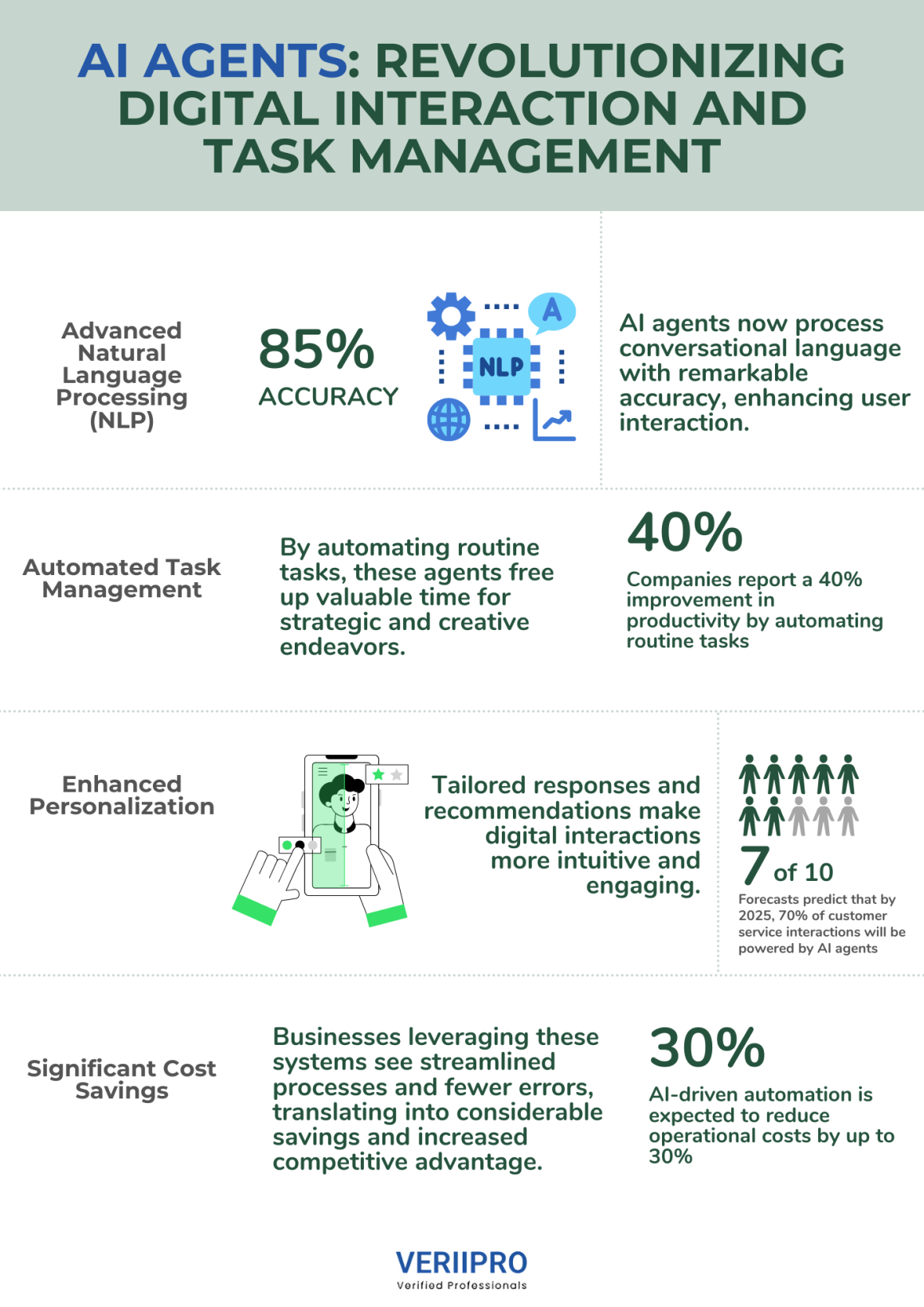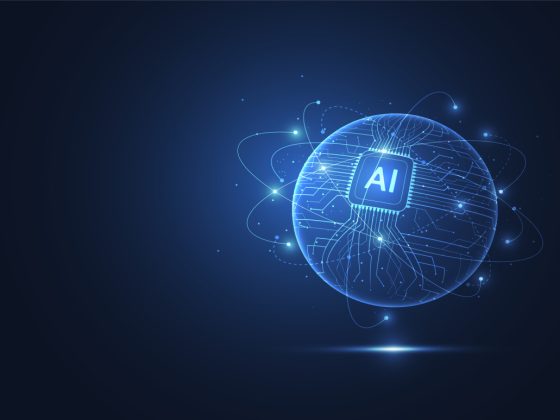AI Agents: Revolutionizing Digital Interaction and Task Management
The digital landscape is evolving at breakneck speed, and AI agents are at the forefront of this transformation. These intelligent systems—powered by advancements in machine learning and natural language processing—are revolutionizing how we interact online and manage our everyday tasks. From personalized virtual assistants to automated workflows, AI agents are reshaping both personal and professional realms, streamlining processes and enhancing productivity.

The Emergence of AI Agents
In recent years, AI agents have transitioned from simple chatbots to sophisticated digital assistants capable of understanding context, learning user preferences, and performing complex tasks autonomously. Unlike traditional software, these agents can adapt to user behavior and provide tailored recommendations, making digital interactions more natural and intuitive. For example, platforms like ChatGPT have set a new benchmark in conversational AI, demonstrating the potential of these agents to handle everything from customer service inquiries to creative brainstorming.
Enhancing Digital Interaction
AI agents are fundamentally changing how we communicate with technology. With natural language interfaces, they allow users to interact using everyday speech instead of complex commands. This evolution not only simplifies user experiences but also makes technology more accessible. Whether it’s scheduling meetings, managing emails, or even providing technical support, AI agents are designed to understand context and deliver accurate responses.
Recent studies published in the MIT Technology Review highlight that improved natural language understanding and context-awareness are key drivers behind the adoption of AI agents. These capabilities enable more human-like interactions, reducing the friction that often accompanies digital communication and helping to bridge the gap between humans and machines.
Streamlining Task Management
One of the most significant benefits of AI agents lies in their ability to manage and automate tasks. In today’s fast-paced business environment, efficiency is crucial. AI agents can handle repetitive and time-consuming activities—such as data entry, scheduling, and even basic decision-making—allowing employees to focus on higher-value tasks that require creativity and strategic thinking.
For instance, enterprise solutions powered by AI can integrate with existing workflows to monitor project timelines, optimize resource allocation, and send proactive reminders for upcoming deadlines. This not only boosts productivity but also minimizes errors that can occur with manual processes. According to Harvard Business Review, companies that incorporate AI-driven automation see significant improvements in operational efficiency, leading to cost reductions and enhanced competitive advantage.
Transforming the Business Landscape
Across industries, businesses are reaping the benefits of AI agents by deploying them in customer service, marketing, and operational management. In customer service, AI agents provide 24/7 support, quickly addressing inquiries and resolving issues without the need for human intervention. This instant accessibility improves customer satisfaction and loyalty.
Marketing teams leverage AI agents to analyze customer data and deliver personalized experiences at scale. By predicting customer behavior and optimizing engagement strategies, these agents help companies tailor their offerings to individual preferences, leading to higher conversion rates and increased revenue.
Moreover, in operational management, AI agents are used to monitor supply chains, predict maintenance needs, and even manage inventory. This predictive capability ensures that businesses can preempt issues before they arise, further solidifying the role of AI as a key enabler of digital transformation.
Challenges and Considerations
Despite their many advantages, the integration of AI agents into digital interaction and task management is not without challenges. Data privacy, ethical considerations, and the potential for algorithmic bias remain critical issues that developers and businesses must address. Ensuring that AI agents operate transparently and ethically is essential to maintaining user trust and safeguarding sensitive information.
Moreover, as organizations increasingly rely on these agents, the need for robust cybersecurity measures becomes paramount. Protecting AI systems from potential cyber threats and ensuring they comply with data protection regulations is vital for their sustained success.
Looking Ahead: The Future of AI Agents
The future of digital interaction and task management is poised for even greater transformation as AI agents continue to evolve. With ongoing advancements in deep learning and the increasing availability of big data, these agents will become even more adept at understanding and anticipating user needs.
Innovations such as multi-agent systems—where several AI agents collaborate to solve complex problems—could further enhance efficiency and decision-making capabilities. As these systems mature, we can expect a shift towards a more integrated digital ecosystem where AI agents seamlessly interact across various platforms, providing a unified and highly personalized user experience.
Looking for opportunities in digital transformation? VeriiPro is here to help!









